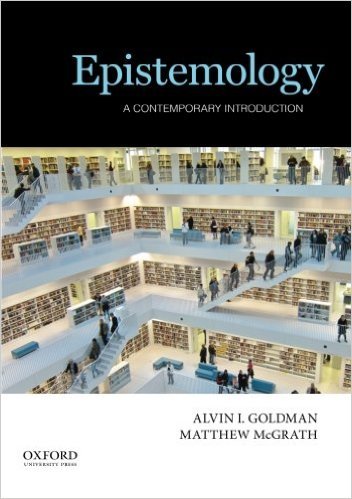
Epistemology has long mesmerized its practitioners with numerous puzzles. What can we know, and how can we know it? In Epistemology: A Contemporary Introduction, Alvin Goldman, one of the most noted contemporary epistemologists, and Matthew McGrath, known for his work on a wide range of topics in the field, have joined forces to delve into these puzzles. Featuring a clear and engaging writing style and intriguing examples, Epistemology surveys both traditional and emerging topics in depth, acquainting students not only with the history of the field but also its new developments and directions. The first half of the book examines core questions about the nature and structure of justification and knowledge, skepticism, and the Gettier problem, paying careful attention to reliabilism, evidentialism, contextualism, pragmatic encroachment, knowledge-first epistemology, and "dogmatism" about perceptual justification. The second half provides lively excursions into such new topics as the relevance of cognitive science to epistemology, the prospects for experimental philosophy, and the evidential status of intuitions. The authors open coverage of each topic with an introduction for beginners and then move on to analyses suitable for advanced undergraduate and graduate students.
Author

Alvin Ira Goldman (born 1938) is an American philosopher who is Emeritus Board of Governors Professor of Philosophy and Cognitive Science at Rutgers University in New Jersey and a leading figure in epistemology. Goldman earned his BA from Columbia University and PhD from Princeton University, and previously taught at the University of Michigan (1963–1980), the University of Illinois, Chicago (1980–1983) and the University of Arizona (1983–1994). He joined the Rutgers faculty in 1994[1] and retired in 2018.[2] He is married to the ethicist Holly Martin Smith. Goldman's accounts of knowledge and justified belief, using notions like causation and reliability instead of normative concepts like permissibility and obligation, contributed to a philosophical approach that came to be known in the 1970s as naturalized epistemology.